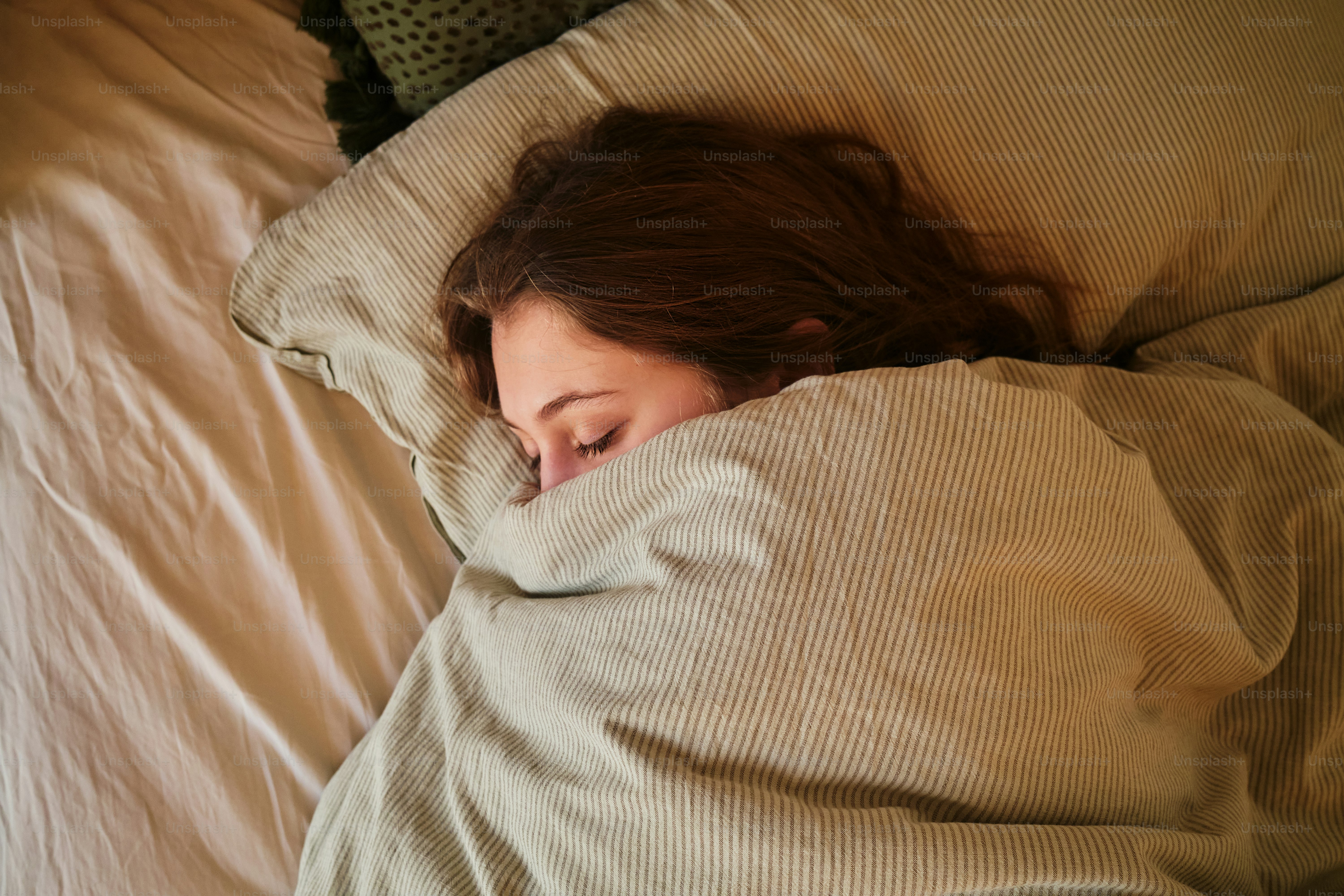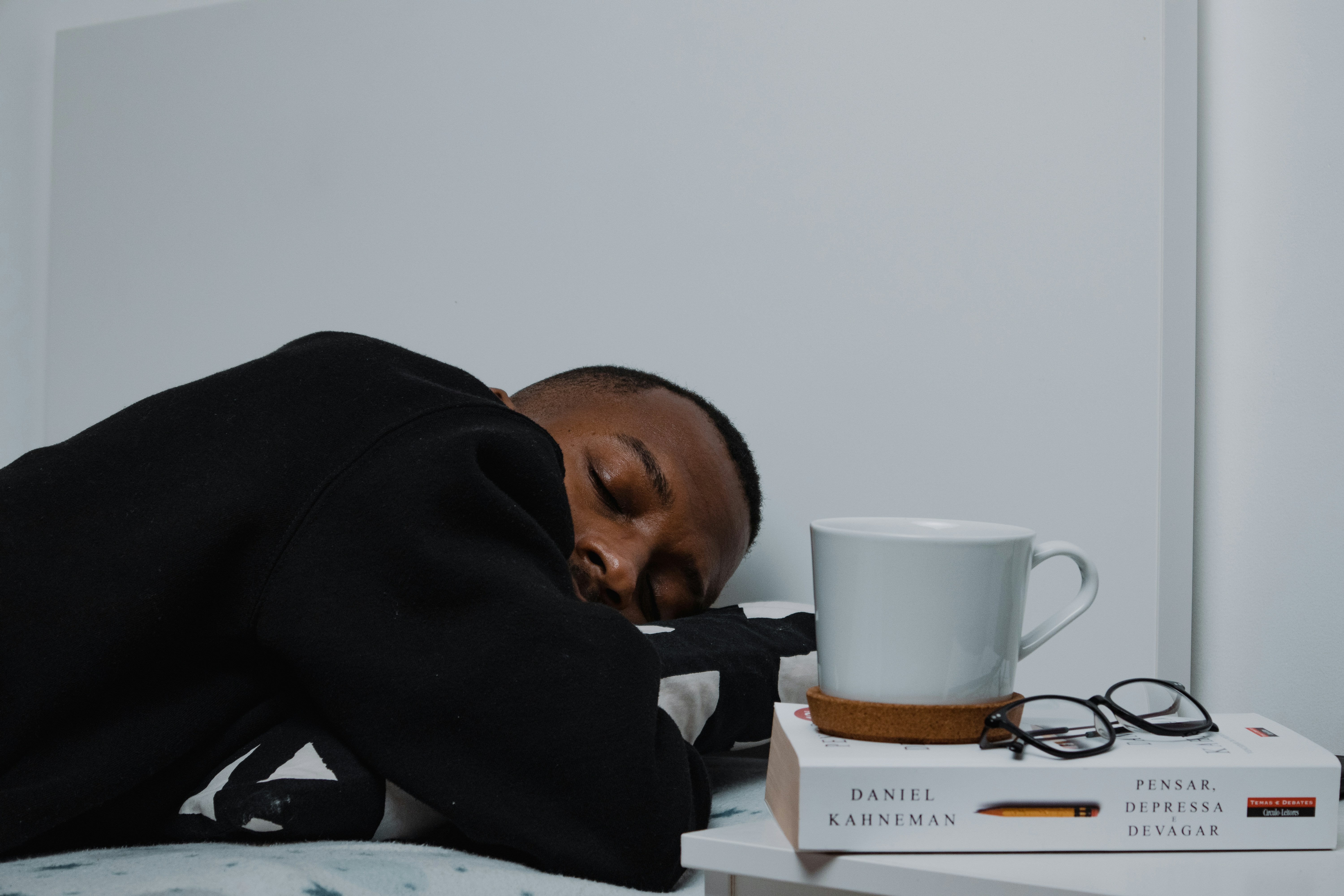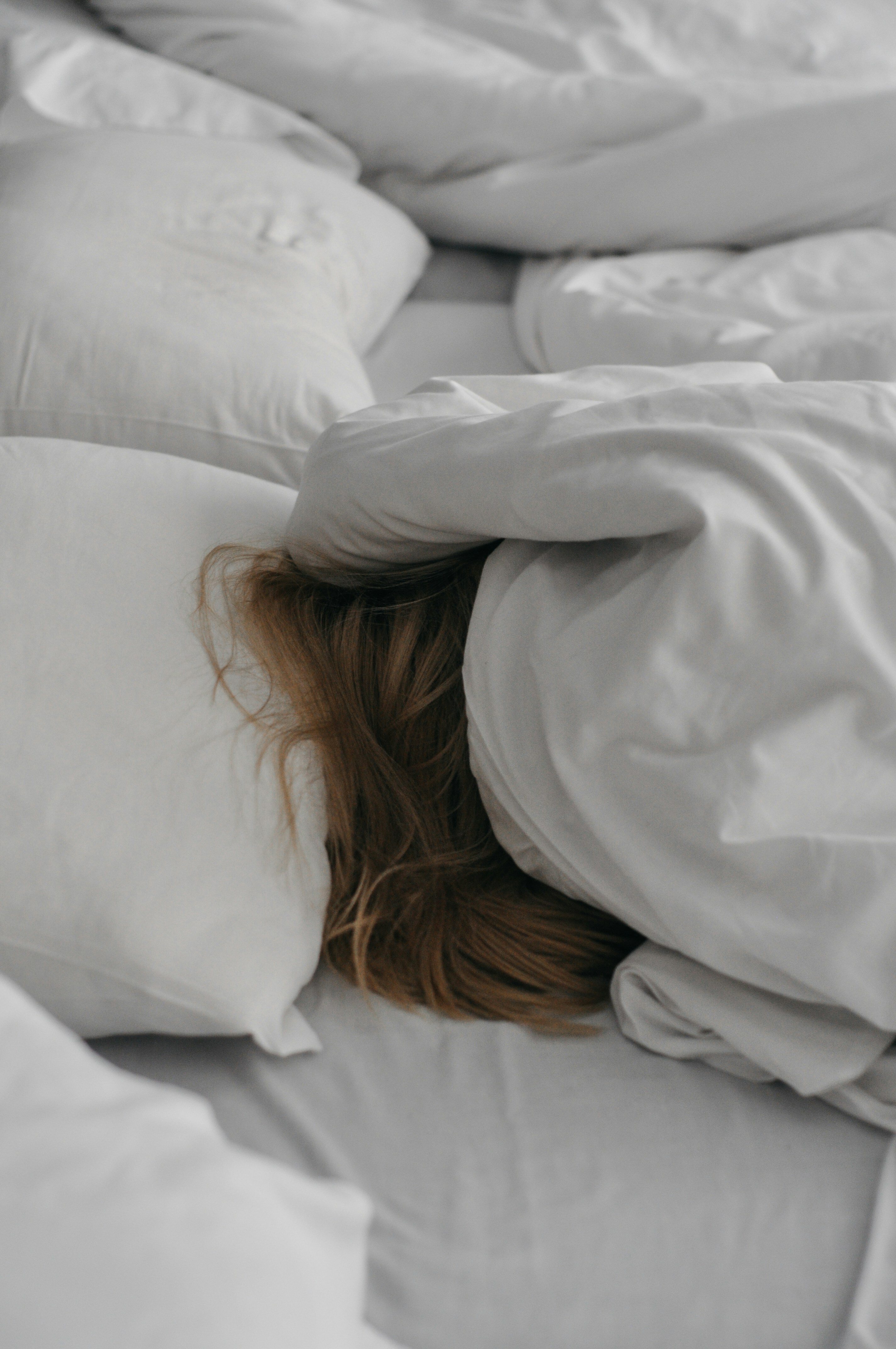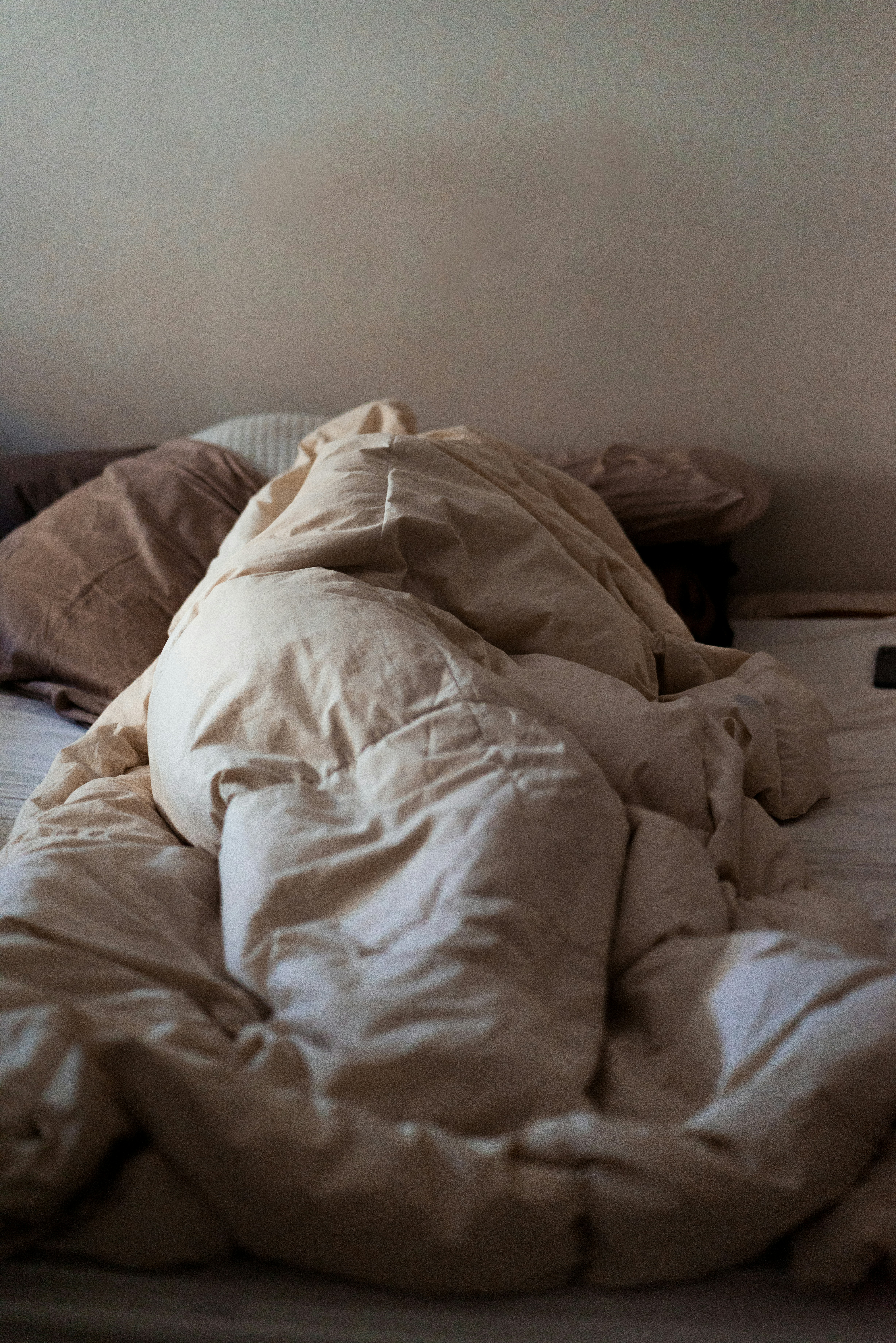What Happens If You Sleep Too Much? The Surprising Truth About Oversleeping
Have you ever slept for 10, 11, or even 12 hours and still felt tired? You might think "more sleep is always better," but here's a surprising truth: sleeping too much can actually make you feel worse than not sleeping enough!
Let me explain this in a way that makes perfect sense, even to a curious 6-year-old who wonders why sleeping "too long" might not be good for you.
What Does "Sleeping Too Much" Actually Mean?
Think of sleep like eating. Just like you need the right amount of food to feel good (not too little, not too much), your body needs the right amount of sleep.
Here's what different amounts of sleep do:
Too Little Sleep (under 6 hours):
- Like not eating enough - you feel weak and grumpy
- Your body can't work properly
- You get sick more easily
Just Right Sleep (7-9 hours for adults):
- Like eating a perfect meal - you feel energized and happy
- Your body works at its best
- You feel ready to take on the day
Too Much Sleep (over 9-10 hours regularly):
- Like eating way too much - you feel sluggish and uncomfortable
- Your body gets confused about what time it is
- You might feel tired even after all that sleep!
Why Does Sleeping Too Much Make You Feel Bad?
This might seem backwards, but here's what happens in your body when you sleep too long:
Your Body's Clock Gets Confused:
- Your internal clock (circadian rhythm) gets mixed up
- It's like your body doesn't know if it's day or night
- This makes you feel groggy and out of sync
Your Sleep Cycles Get Messed Up:
- Normal sleep has cycles that last about 90 minutes
- When you oversleep, you might wake up in the middle of a deep sleep cycle
- This is why you feel more tired after 10 hours than after 7-8 hours
Your Brain Chemistry Changes:
- Too much sleep can affect the chemicals in your brain
- These chemicals control your mood and energy
- This is why oversleepers often feel sad or anxious
Your Body Becomes Less Active:
- The longer you stay in bed, the less your body wants to move
- Your muscles get weak and stiff
- Your energy levels drop instead of increase
Signs You Might Be Sleeping Too Much
Physical Signs:
- Feeling tired even after long sleep
- Headaches when you wake up
- Feeling like you need naps during the day
- Your body feels heavy and sluggish
- Getting sick more often than usual
Mental Signs:
- Trouble concentrating or focusing
- Feeling sad, anxious, or moody
- Memory problems or "brain fog"
- Difficulty making decisions
- Feeling unmotivated or lazy
Daily Life Signs:
- Always running late because you oversleep
- Missing activities because you can't get out of bed
- Friends and family notice you sleep a lot
- Feeling guilty about how much you sleep
- Your sleep schedule keeps getting later and later
What Causes People to Sleep Too Much?
Sleep Quality Problems:
- Poor sleep at night: If your sleep is constantly interrupted, your body tries to make up for it by sleeping longer
- Sleep disorders: Conditions like sleep apnea make your sleep less restful
- Uncomfortable sleep environment: Too hot, too cold, too noisy, or too bright
Health Issues:
- Feeling sad or depressed: Mental health problems often cause oversleeping
- Thyroid problems: An underactive thyroid makes you very tired
- Chronic pain: Your body needs more rest when it's dealing with pain
- Medications: Some medicines make you very sleepy
Lifestyle Factors:
- Irregular schedule: Going to bed at different times confuses your body
- Too much screen time: Blue light messes up your sleep hormones
- Not enough sunlight: Your body doesn't know when to be awake
- Lack of exercise: If you don't use energy during the day, your sleep gets weird
Age-Related Changes:
- Teenagers: Need more sleep during growth spurts (8-10 hours is normal)
- Older adults: Sometimes need more sleep due to health changes
- Sick people: Need extra sleep to heal and recover
The Surprising Health Problems from Too Much Sleep
Brain and Thinking Problems:
- Memory gets worse over time
- Harder to learn new things
- Trouble paying attention
- Increased risk of brain diseases later in life
Heart and Body Problems:
- Higher risk of heart disease
- More likely to develop diabetes
- Weight gain and metabolism problems
- Weaker immune system
Mental Health Issues:
- Increased feelings of sadness or depression
- More anxiety and worry
- Lower self-esteem
- Difficulty enjoying activities
Daily Life Problems:
- Less energy for work, school, or fun activities
- Strained relationships with family and friends
- Missing out on important events
- Feeling like you're wasting your life
How Much Sleep Do You Actually Need?
Babies (0-12 months): 12-17 hours (totally normal!) Toddlers (1-3 years): 11-14 hours Kids (4-12 years): 9-12 hours Teenagers (13-18 years): 8-10 hours Adults (18-64 years): 7-9 hours Older Adults (65+ years): 7-8 hours
Remember: These are ranges! Some people naturally need a little more or less. The key is finding YOUR perfect amount and sticking to it.
Use our Sleep Calculator to find your ideal bedtime and wake-up time based on your age and schedule!
How to Break the Oversleeping Cycle
Week 1: Start Small
- Set your alarm 15 minutes earlier each day
- Get sunlight within 30 minutes of waking up
- Don't go back to bed no matter how tempting
- Use our Sleep Calculator to find your target wake time
Week 2: Build Better Habits
- Keep the same bedtime every night (even weekends!)
- Stop all screens 1 hour before bed
- Make your bedroom cooler and darker
- Do something active during the day
Week 3: Fine-Tune Your Schedule
- Adjust your bedtime to get 7-9 hours of sleep
- Notice how you feel with different amounts of sleep
- Track your energy levels throughout the day
- Celebrate small improvements!
Week 4: Make It Stick
- Your new schedule should feel more natural
- You should feel more energetic during the day
- Keep making small adjustments as needed
- Help someone else improve their sleep too!
Fun Activities to Replace Extra Sleep Time
Morning Energy Boosters:
- Have a dance party to your favorite songs
- Do 10 jumping jacks or stretches
- Eat breakfast outside or by a sunny window
- Call a friend or family member to say good morning
Productive Activities:
- Read a book you've been wanting to finish
- Learn something new (language, skill, hobby)
- Organize one small area of your room
- Write in a journal about your goals and dreams
Social Activities:
- Spend time with family or friends
- Take your dog for a walk
- Help someone with a project
- Join a morning activity group
Self-Care Activities:
- Take a relaxing shower or bath
- Do gentle yoga or meditation
- Listen to uplifting music or podcasts
- Prepare a healthy, delicious meal
When Oversleeping Might Be Normal
It's okay to sleep more when:
- You're sick and your body is healing
- You're going through a growth spurt (especially teenagers)
- You've had several days of poor sleep and need to recover
- You're dealing with a stressful life event
- You're recovering from surgery or medical treatment
It's NOT okay when:
- You consistently need more than 10 hours every night
- You feel tired no matter how much you sleep
- Oversleeping interferes with work, school, or relationships
- You feel sad, anxious, or hopeless most of the time
- You can't control your sleep schedule no matter what you try
Creating Your Perfect Sleep Schedule
Step 1: Figure Out Your Natural Pattern
- For one week, go to bed when you feel tired (no alarms)
- Notice when you naturally wake up
- Track how you feel with different amounts of sleep
- Use our Sleep Calculator to analyze your patterns
Step 2: Set Consistent Times
- Choose a wake-up time that works for your life
- Count back 7-9 hours to find your bedtime
- Stick to these times every single day (yes, even weekends!)
- Give your body 2-3 weeks to adjust
Step 3: Optimize Your Environment
- Make your bedroom cool (65-68°F), dark, and quiet
- Remove or cover all screens and electronic lights
- Use comfortable bedding and pillows
- Consider blackout curtains or a white noise machine
Step 4: Build Supporting Habits
- Get morning sunlight within 1 hour of waking
- Exercise regularly (but not close to bedtime)
- Eat regular meals at consistent times
- Limit caffeine after 2 PM (use our Sleep Calculator for personalized timing)
Signs Your Sleep Schedule is Getting Better
After 1 Week:
- Easier to wake up at your target time
- Less urge to go back to sleep
- Slightly more energy during the day
After 2-3 Weeks:
- Natural energy without needing lots of caffeine
- Better mood and less irritability
- Falling asleep more easily at bedtime
After 1 Month:
- Waking up feeling refreshed most days
- Stable energy throughout the day
- Better focus and concentration
- Improved relationships and productivity
After 2-3 Months:
- Your body automatically follows your schedule
- Excellent sleep quality and daytime energy
- Better overall health and mood
- Feeling proud of your healthy habits!
Common Questions About Oversleeping
Q: Is it bad to sleep 10 hours if I feel good? A: If you naturally need 10 hours and feel great, that might be normal for you. But if you need 10+ hours and still feel tired, something else might be going on.
Q: Can oversleeping on weekends make up for lost sleep? A: A little extra sleep can help, but sleeping in too late messes up your body clock. Try to stay within 1-2 hours of your regular wake time.
Q: Why do I feel worse after sleeping 12 hours than 8 hours? A: You probably woke up in the middle of a deep sleep cycle. Your body also gets confused when you sleep way more than usual.
Q: Should I force myself to wake up early if I'm naturally a night owl? A: You can gradually shift your schedule, but work with your natural tendencies when possible. Some people are naturally night owls, and that's okay!
Your Journey to Perfect Sleep Starts Today
Remember, finding your perfect sleep amount is like finding the perfect temperature for your shower - too little and you're uncomfortable, too much and you're also uncomfortable, but just right feels amazing!
The goal isn't to sleep as little as possible or as much as possible. The goal is to find YOUR perfect amount that makes you feel energetic, happy, and ready to enjoy your life.
Ready to find your perfect sleep sweet spot?
- Use our Sleep Calculator to find your ideal schedule
- Start with small changes - adjust by 15 minutes at a time
- Track how you feel with our Text Analyzer to identify patterns
- Be patient - it takes 2-4 weeks for your body to adjust
- Celebrate progress - every step toward better sleep is worth celebrating!
Your best days start with the right amount of sleep - not too little, not too much, but just right for YOU! 😴
Remember: Everyone's sleep needs are different. If you're concerned about your sleep patterns, especially if you feel tired despite sleeping a lot, talk to a doctor. Sometimes oversleeping can be a sign of health issues that need attention.



